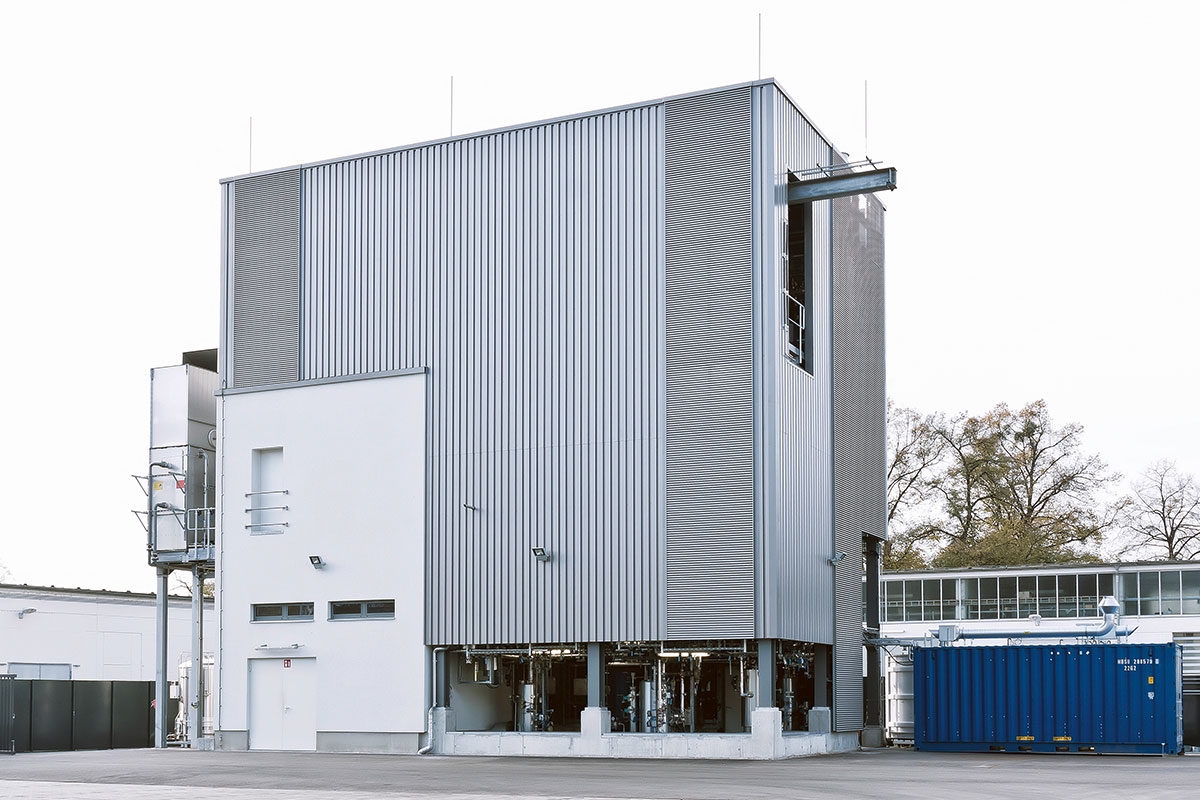Audi ha inaugurado la planta piloto para la producción de Audi e-diesel en Dresden. La planta sunfire, requiere dióxido de carbono, agua y electricidad como materias primas.
- El dióxido de carbono se extrae directamente del aire utilizando una tecnología de captura directa desarrollada por los socios suizos de Climeworks.
- En un proceso independiente, una unidad de electrolisis divide el agua en hidrógeno y oxígeno. Esa unidad funciona con electricidad obtenida de forma sostenible.
- El hidrógeno se hace reaccionar con el dióxido de carbono en dos procesos químicos que se llevan a cabo a una temperatura de 220 grados Celsius y con una presión de 25 bares, para producir un líquido compuesto por hidrocarburos que recibe el nombre de “Blue Crude” (petróleo azul). En este proceso, la eficiencia alcanza hasta un 70 por ciento.
La planta piloto puede producir aproximadamente unos 160 litros diarios de “petróleo azul”, del cual casi el 80 por ciento puede transformarse en combustible diesel sintético, libre de azufre y compuestos aromáticos. Este combustible tomará el nombre de Audi e-diesel.
Este proceso de producción hace que el Audi e-diesel tenga un alto número de cetano, lo que significa que se inflama con facilidad. Sus propiedades químicas permiten que pueda utilizarse como un combustible convencional, por lo que puede mezclarse con el diesel fósil en cualquier proporción.
Audi combina dos innovadoras tecnologías para la producción de e-diesel: la captura del CO2 del medio ambiente y el proceso “power-to-liquid”. Este proyecto está financiado en parte por el Ministerio Federal Alemán de Educación e Investigación, y precedido por una fase de preparación e investigación previa de dos años.
Audi y los combustibles sostenibles
Las actividades de Audi en el desarrollo de combustibles sin emisiones de CO2 van más allá de la asociación con sunfire; de hecho, se iniciaron en 2009. La planta de Audi e-gas ya produce metano sintético (Audi e-gas) de forma similar, y los conductores del Audi A3 Sportback g-tron pueden repostar sus vehículos con este combustible. Audi también está llevando a cabo investigaciones para la producción de Audi e-gasolina en colaboración con la empresa francesa Global Bioenergies. Y también está en marcha un proyecto conjunto con la compañía estadounidense Joule para producir combustibles sintéticos Audi e-diesel y Audi e-etanol con la ayuda de microorganismos. Audi también ofrece electricidad producida de forma ecológica para los usuarios del Audi A3 Sportback e-tron.























































